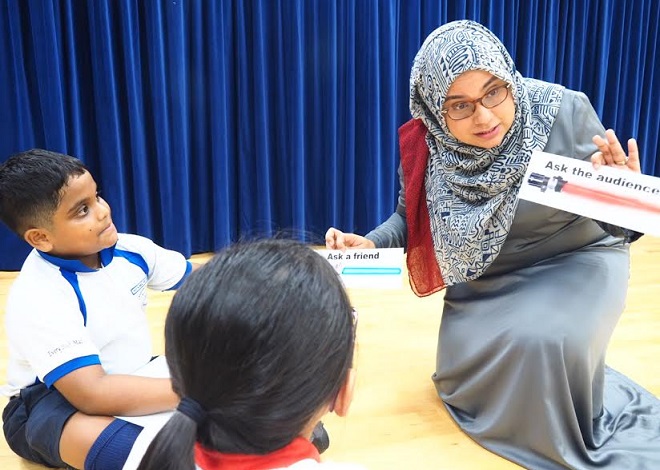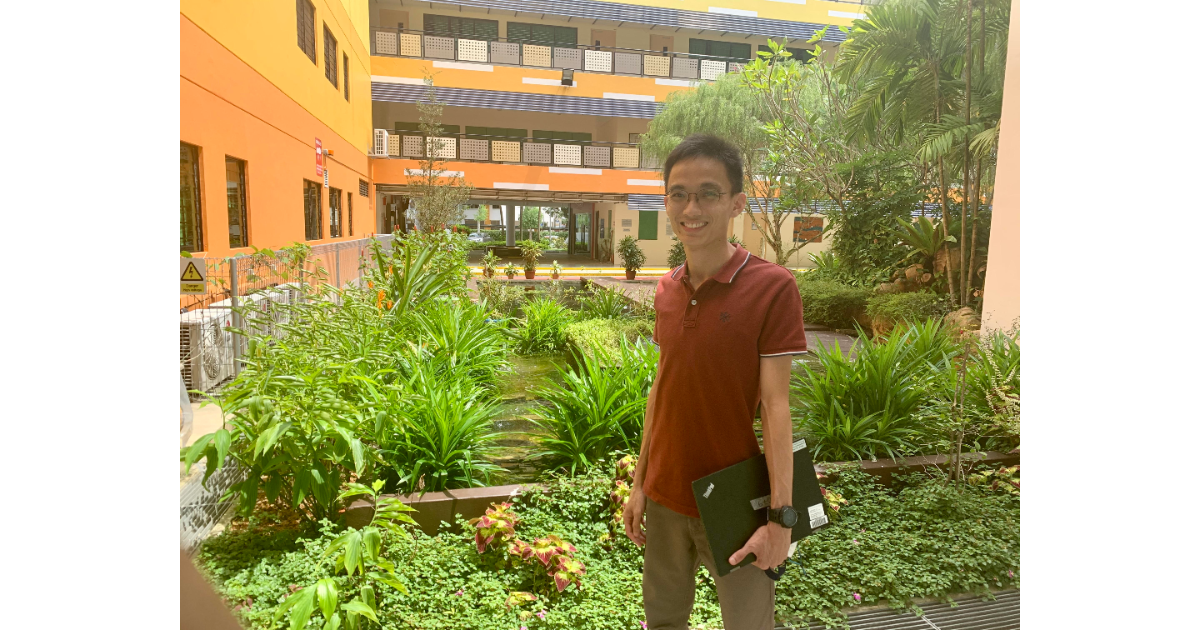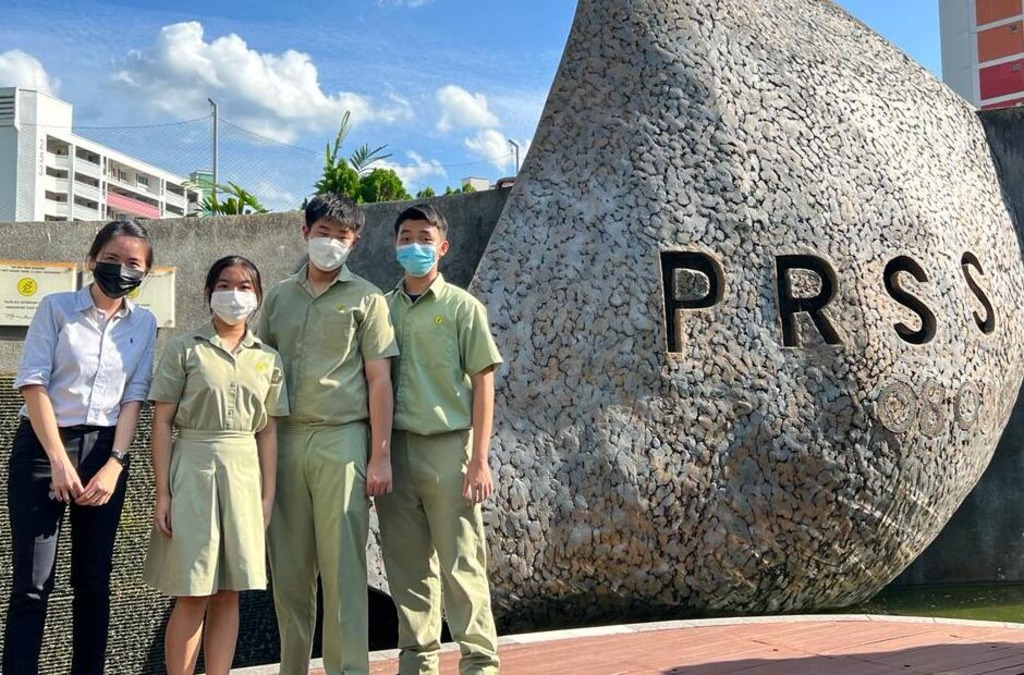Organised by Science Centre Singapore and supported by Temasek Foundation, the Young Sustainability Champion (YSC) programme started in April this year and attracted over 4,000 participants aged 13 to 17 years old. They came from across 50 schools to work in teams to develop sustainable solutions.
This started with completing the online “I am a Young Sustainability Champion” programme. That had students doing tasks like writing a short paragraph about their country’s efforts towards affordable clean energy, or designing a game to promote sustainable cities and communities.
The tasks exposed students to the range of sustainability issues related to the environment and innovation, and got them thinking of ways they could make a difference.
From this pool, 60 shortlisted participants progressed to the mentorship and prototyping stage, where they underwent workshops on design thinking, business modelling, value proposition and prototyping. Teams were instructed to create prototypes of their solutions. Seven finalist teams further refined their prototypes for the YSC Senior Hackathon Grand Finals, where they presented to a panel of judges including representatives from UNESCO Asia Pacific and UNDP Singapore.
From smart bins that sort recyclable waste to smart fridges that track food expiry, these students have shown that they are more creative than we might imagine.
Smart recycling bin
Team Wastebusters, Nanyang Girls High School
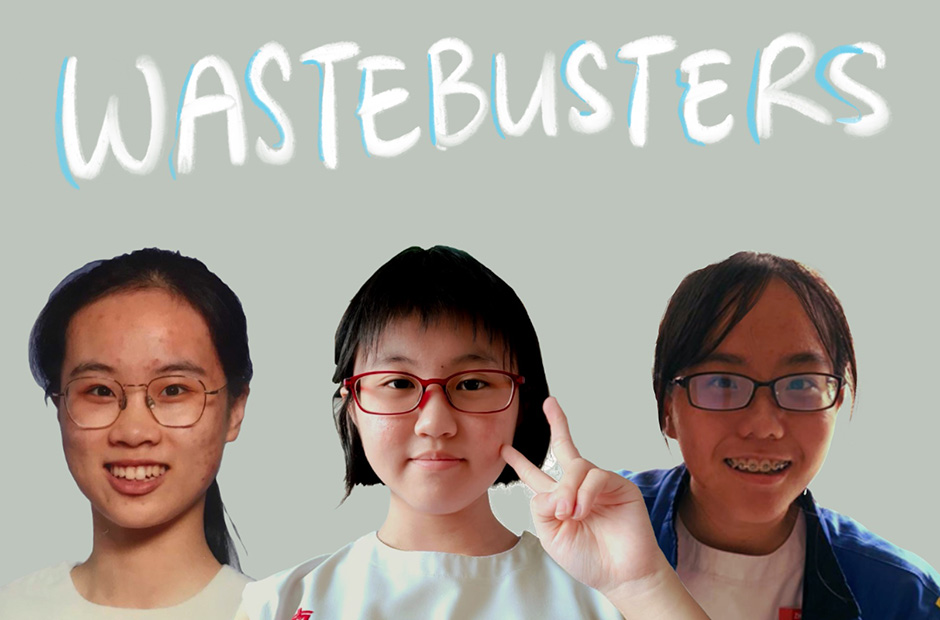
How does it feel to be the winning team for the inaugural Young Sustainability Champion Hackathon?
“I am really grateful for the title, and the recognition of our efforts is great motivation for me to be more active in promoting sustainability in Singapore,” says Celestar Hong.
She worked with two other schoolmates to devise an automatic waste sorting bin that would separate waste in a convenient manner, with recyclable plastics kept apart from the trash.
The team’s motivation for their project came from a desire to make recycling more effective. They learnt that in Singapore, 40% of the items collected from recycling bins can’t be recycled. That happens when wrong items like foods and liquids are thrown into the blue recycling bin, contaminating everything within. Building their prototype however, proved to be tricky.
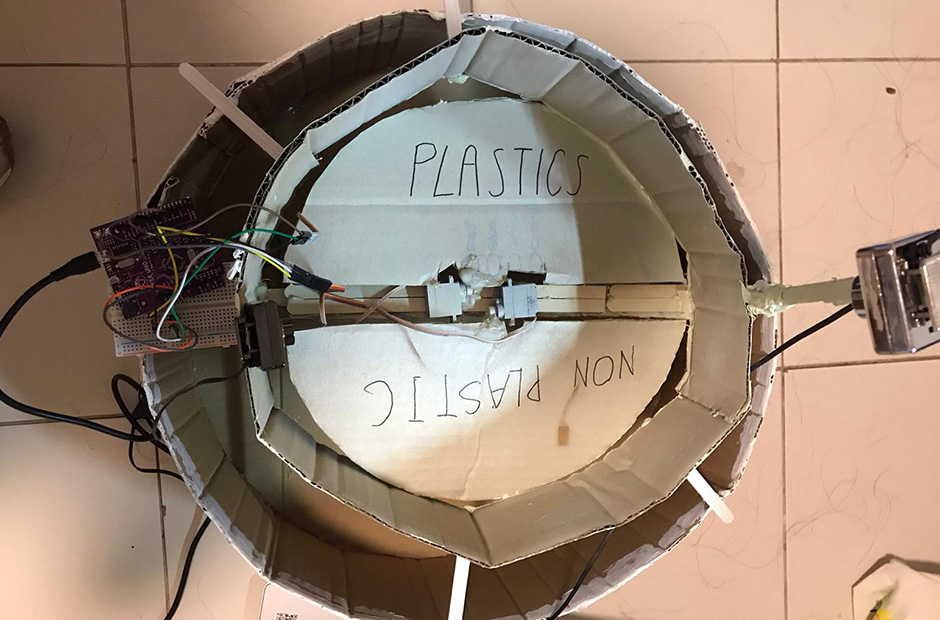
Stackable planters for small spaces
Team Kyyueleen, Nanyang Girls High School
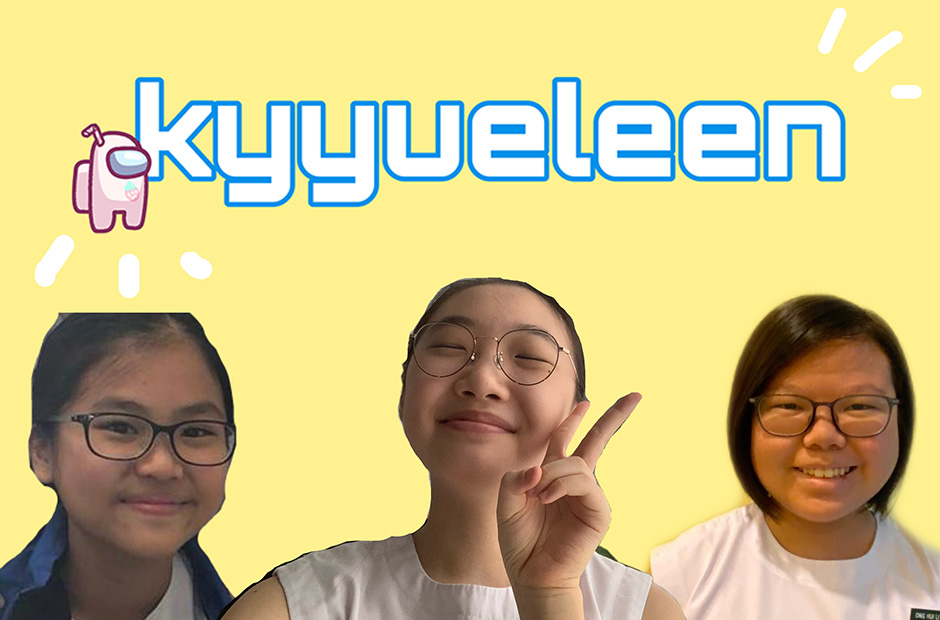
Also from Nanyang Girls High is team Kyyueleen. Members Leong Shu Ning Kyra, Li Yuexin, and Ong Hui Li Cathleen chose to tackle the problem of dangerous planting in housing estates. That’s where residents plant illegally on spaces like window ledges.
Their prototype is called “The Changer Lego”, which is a compact and stackable planter that is designed to fit in small corners.
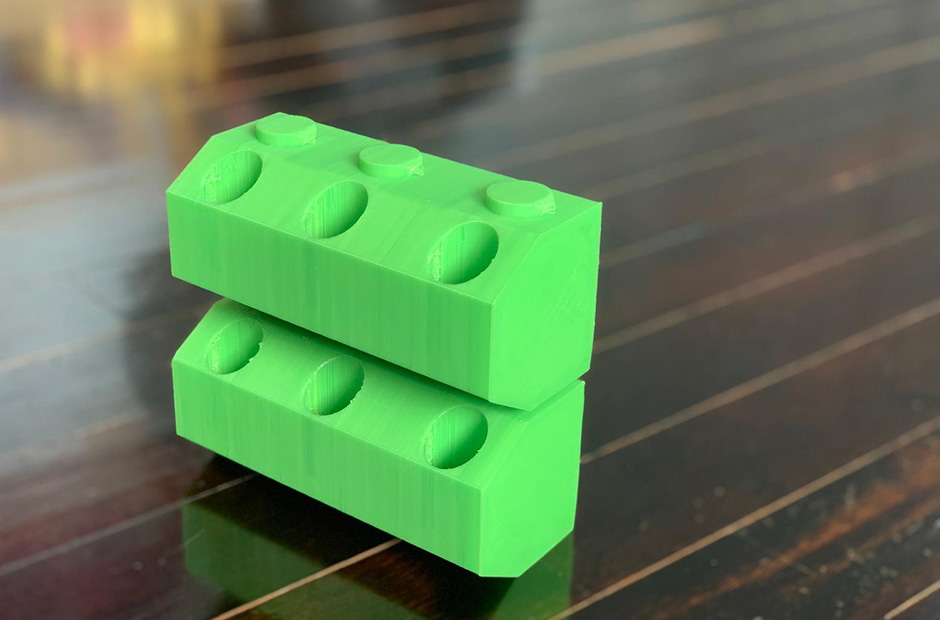
Grocery list that tracks food expiry
Team Triple Threat, Ngee Ann Secondary and German European International School
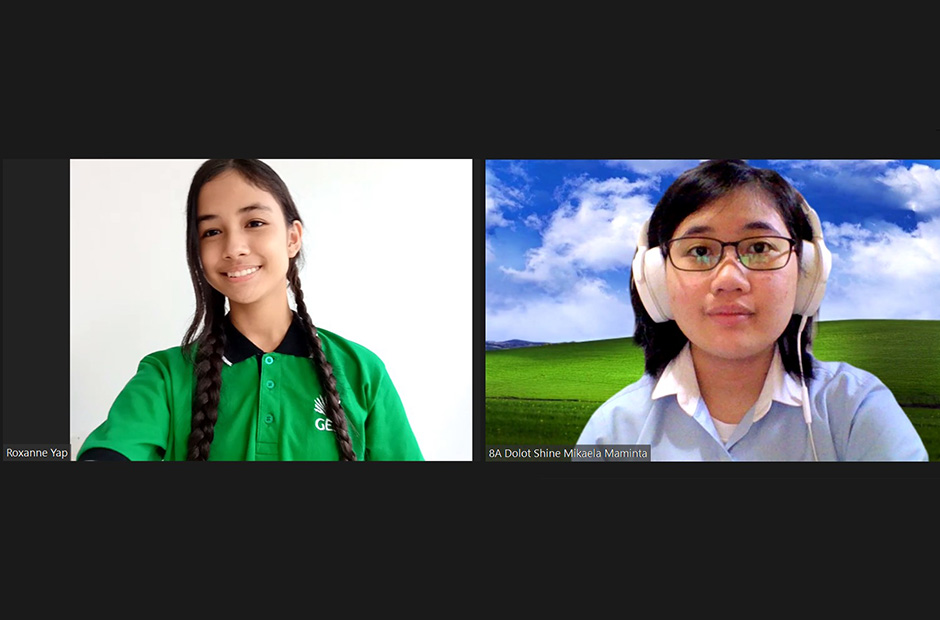
For team Triple Threat (a reference to the slogan ‘Reduce, Reuse, Recycle’), the inspiration for their project struck close to home.
Roxanne Jeniña M Yap, who studies at the German European International School shares: “I realise that food is one of the attractive things in Singapore. The country is doing well economically, and there’s a lot of variety, which gives people the impression that they should try everything, but that leads to a lot of food waste and we should do something about it.”
Teammate Dolot Shine Mikaela Maminta, from Ngee Ann Secondary School, agrees that food wastage is a problem. It’s something she sees with her own family too, because they find it hard to track what is expiring when different people are doing the buying.
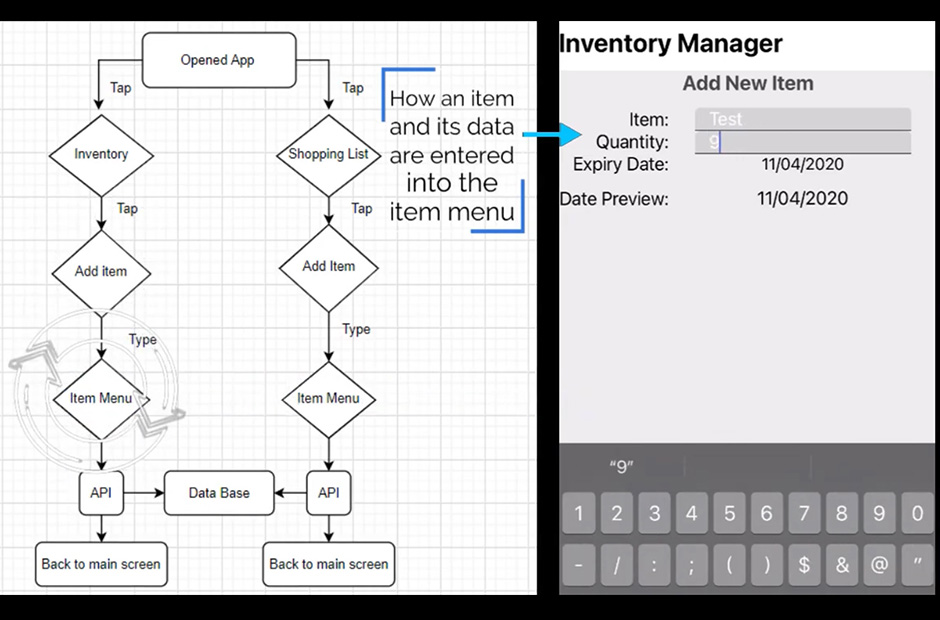
To solve this problem, the pair came up with an app to help households track the expiry of different foods. The app can also create shopping lists that will automatically be checked against what’s already been bought for duplicates, hence reducing excess.
Asked if any other teams stood out to them during the competition, the girls shared that they took particular note of a team called Green Food Truck, from National Junior College; they also dealt with the topic of food waste.
A fridge that tracks food expiry
Team Green Food Truck, National Junior College
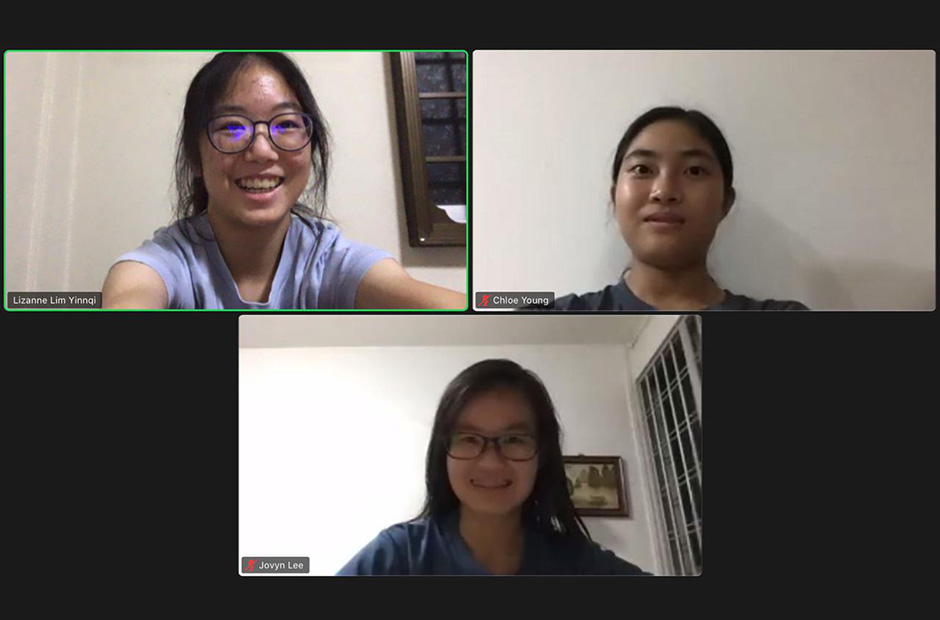
Green Food Truck had taken note of Triple Threat (read story above). But rather than seeing them as competition, the team was glad to see another approach to solving the problem.
“We could one day combine our ideas and come up with something even better,” says Lizanne Lim. Also working on the topic of food wastage, she teamed up with two schoolmates to develop a prototype refrigerator. This scans food as you store it, automatically creating a record to track expiry in the process.
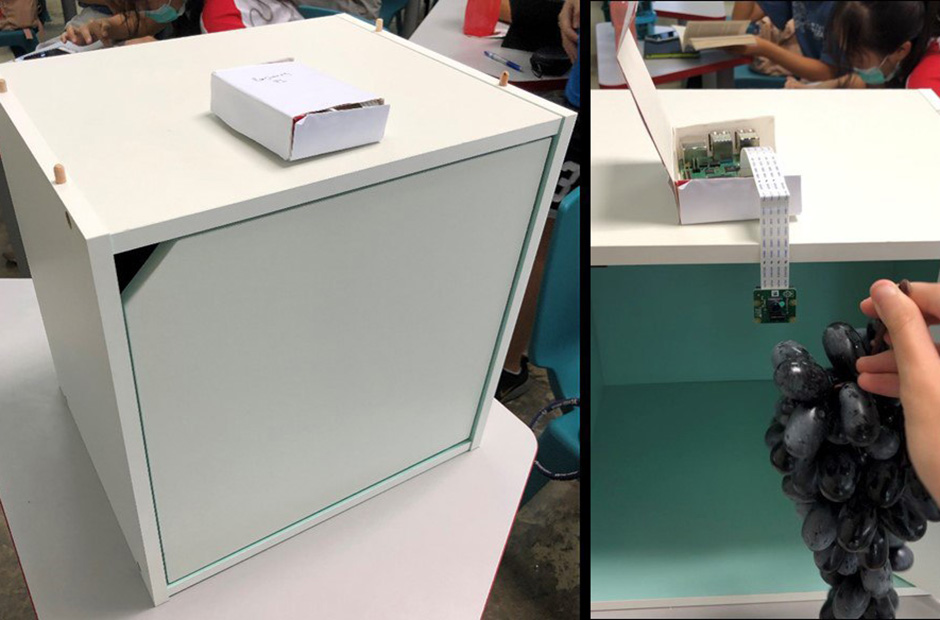
Taking a restauranteur’s perspective, their app helps users keep track of their food. Teammate Chloe Young explains, “There’s often a lot to keep track of in restaurants, so by collecting all the data in a mobile app with reminders, we hope to remind owners to use their ingredients up in time, perhaps through sales or promotions.”
Other than picking up the skills to work with Artificial Intelligence, the team also gained deeper insight into the process of tackling real-world problems. For example, how it was important to first consider factors like financial aspects and competitor products to determine the feasibility of the product.
Coastal traps to clean our oceans
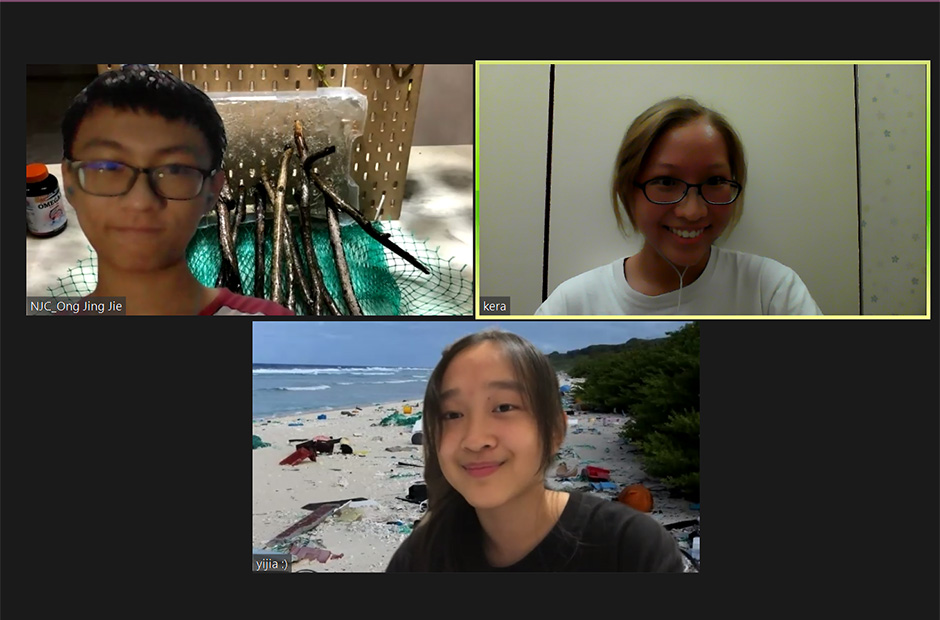
For team Sustainable Hackachampions, the inspiration for their project came from nature. Han Yijia explains, “At first we were at a loss as to what to do, but we were leaning towards something to do with trash collection.”
On a visit to the beach, the team noticed how trash washed up with the tide got tangled in the roots of trees, and their idea was born. However, getting to their final design proved to be quite the challenge.
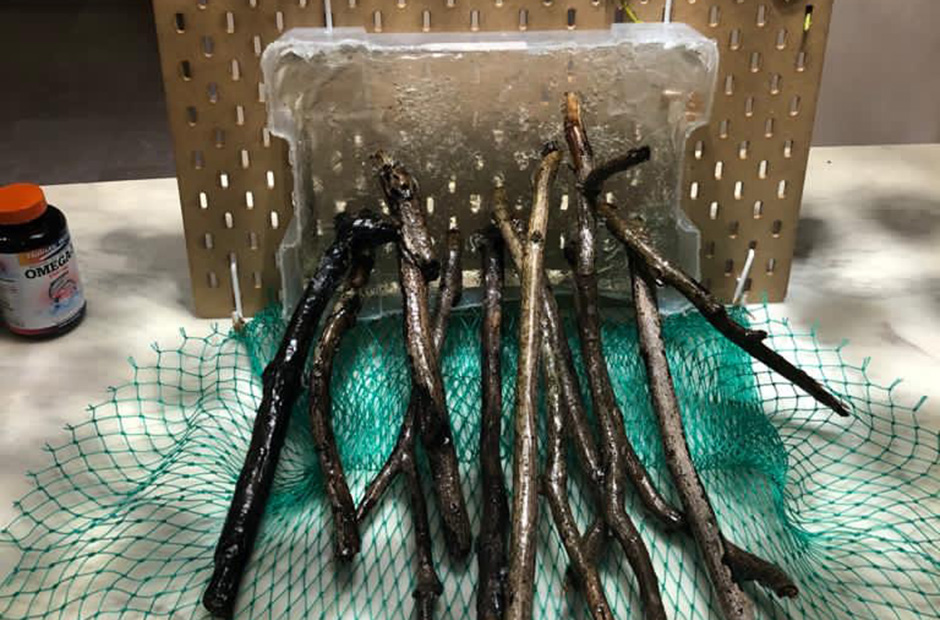
The initial plan was to 3D print the prototype in parts and assemble it, but the team realised they wouldn’t have had enough time to complete everything. Using silicon moulds would also take too long, so eventually the team gathered branches from the beach, coated them in resin and used those in their prototype.
Says Kera: “I think most of the real-life learning and application came in the last part, because it was hard to get guidance every step of the way. So besides having to learn to work with all these materials, we also had to learn to stand on our own two feet.”
Timely reminders to save electricity
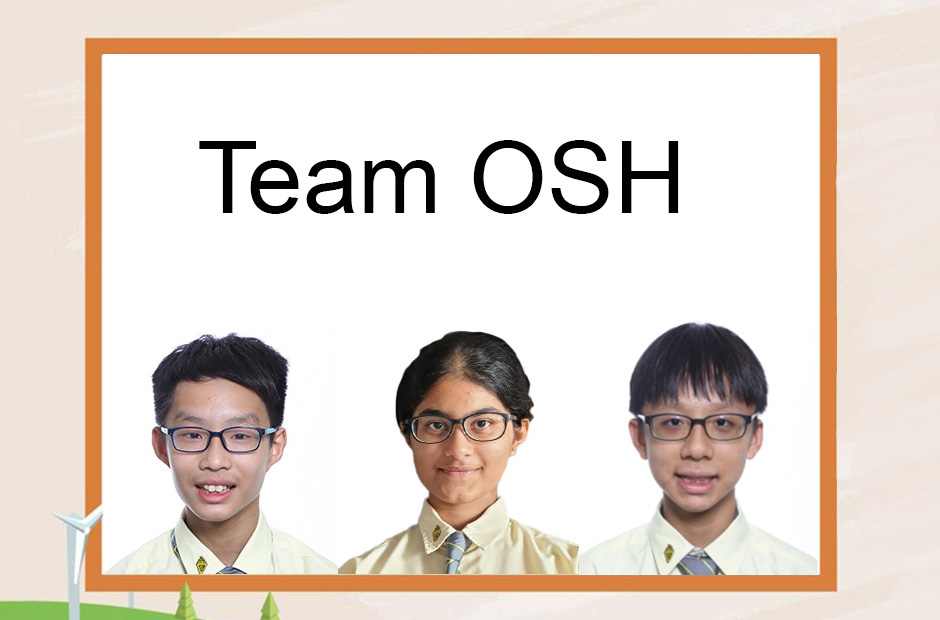
Aiming to create a mind-set change towards environmental sustainability, team OSH (Our Sustainable Home) devised an app to track weekly electricity usage by home appliances.
Users of the app can see how much each individual device is consuming, get tips on how to reduce consumption, and compare how they fare against other family members.
Praharshita Yalamanchili says she wanted to create a solution that would help people easily track their energy consumption. Her parents always reminded her to switch off devices when not in use.
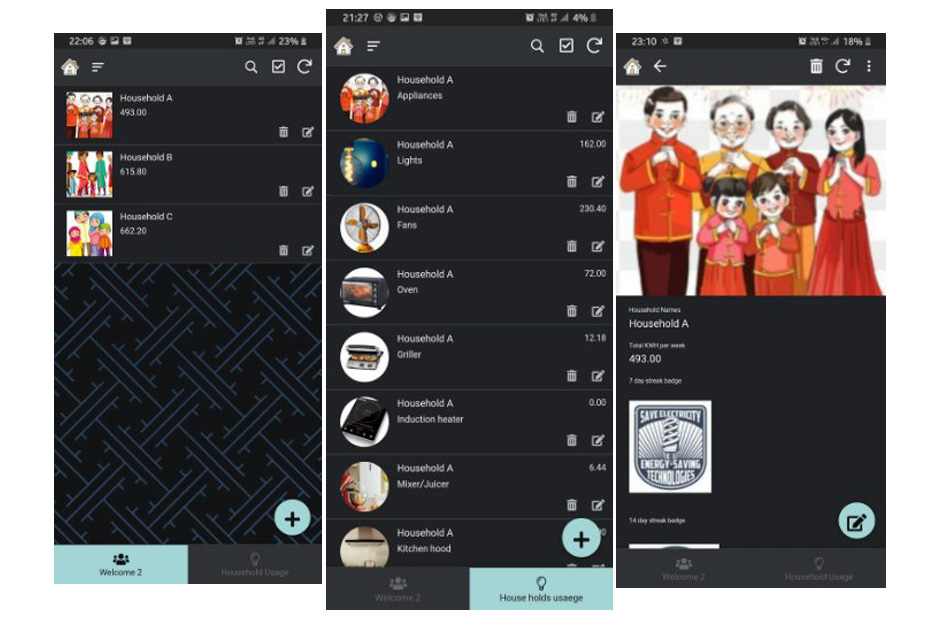
Compact composters for homes and hawkers
The Earthlings, National Junior College
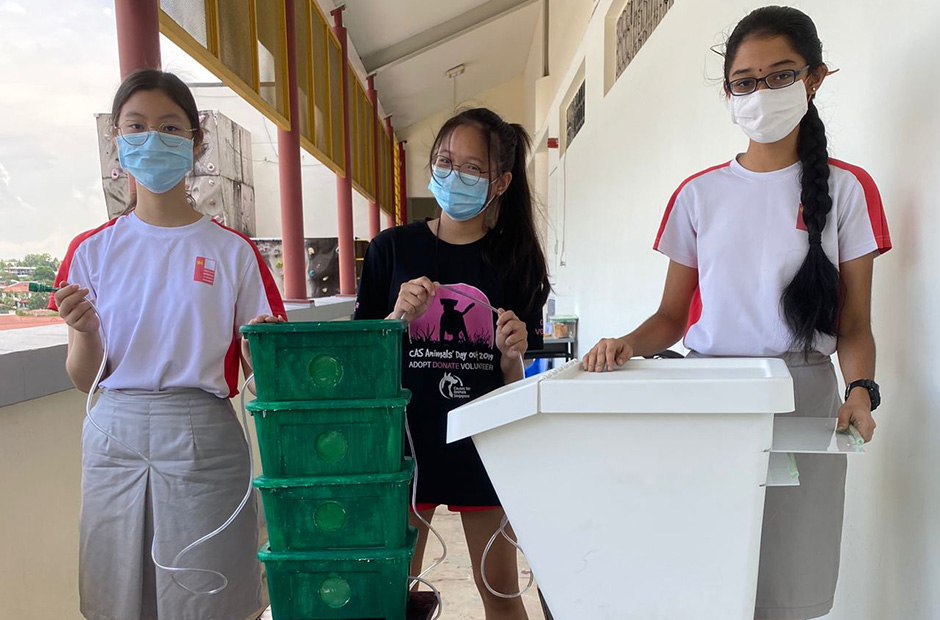
A biogas machine captures the gases produced when organic matter like food scraps decompose. While commercial solutions already exist, they are typically quite large and not designed for small spaces.
Jiaying, Delfina Poernomo and Tejaswini Natarajan came up with a machine that is small enough to be used at hawker stalls and flats.
However, building their prototype required coming up with creative solutions to problems.
For example, a valve was required to control the flow of biogas being released, but the team didn’t have the funds nor the expertise to create one. The team’s solution? They fashioned a valve out of the nozzle from the Ribena drink packet.
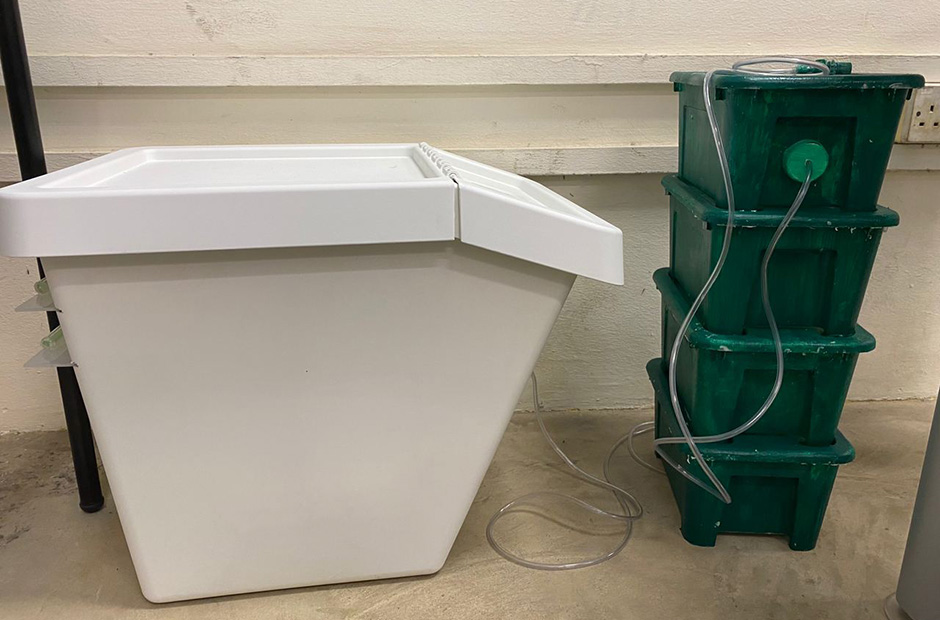
“Our biggest challenge was definitely prototyping, because there was a lot of manual labour and it was our first time building something so complex” shares Delifna. All three girls had to pick up technical skills to work on their project – including drilling – which she says was a big personal fear.
Tejaswini thinks the team worked well together because everyone had different skills they specialised in. She handled the tools and machines, Jiaying used her problem-solving skills to help engineer the prototype, while Delfina came up with out-of-the-box ideas to solve the various challenges the team encountered.
The most memorable thing about the competition? The diversity of the ideas presented. The girls were amazed by range of topics covered, and felt that it was very insightful to see so many different people come together to solve one goal of sustainability.




